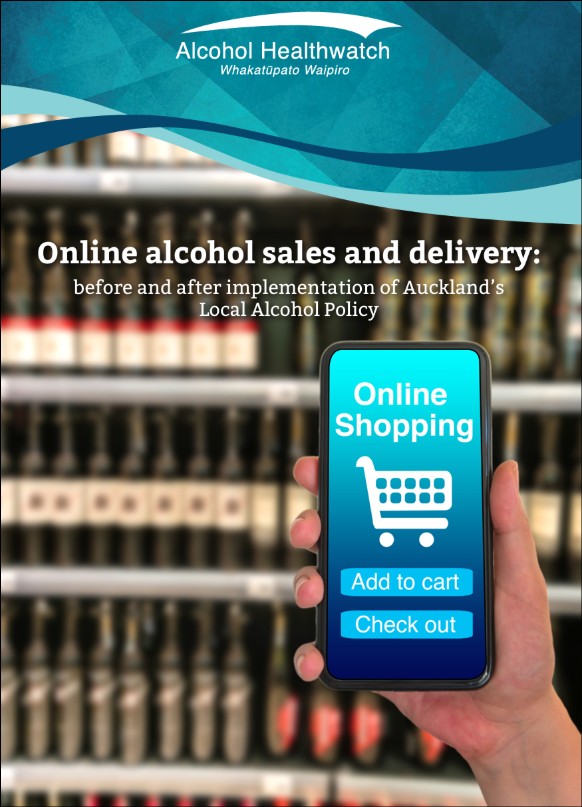Online alcohol sales and delivery.Before and after implementation of Auckland’s Local Alcohol Policy
Author:
Alcohol HealthwatchSource:
Alcohol Healthwatch | National Public Health Service (Northern Region), Health New Zealand – Te Whatu OraPublication date:
2025Topics:
PeopleOnline alcohol sales and delivery: Before and after implementation of Auckland’s Local Alcohol Policy
Executive summary
Background
Under Auckland’s new Local Alcohol Policy (LAP), off-licences or retailers selling takeaway alcohol must close by 9pm instead of the national default trading hour of 11pm. The LAP also places a two-year freeze on new off-licences in areas with the most alcohol-related harm, including the City Centre and 23 other ‘priority overlay’ suburbs. The impacts of the LAP on the availability of alcohol online had not been evaluated before. There is currently limited regulation of on-demand alcohol sales and deliveries in New Zealand. Evidence shows online alcohol sales may be contributing to increased levels of alcohol harm, and this method of purchasing alcohol has grown rapidly since COVID-19.
Methods
We assessed the adherence of on-demand alcohol delivery services (that delivered alcohol within two hours of ordering) to the new permitted trading hours in Auckland, at 9pm and 10pm before and after the LAP came into full effect in December 2024. We compared availability within the City Centre and ‘priority overlay’ suburbs against other areas of the city. We also documented the availability of same-day deliveries (that delivered beyond two hours but on the same day of ordering) through other online retailers. Finally, we described the range of marketing methods used by on-demand alcohol delivery services and compared their pricing of common alcohol products.
Findings
- Adherence by on-demand delivery services to the LAP’s closing time of 9pm appeared to be high. Before the LAP was implemented, there was high availability of these services across Auckland at 9pm, offering delivery times as short as 10 minutes and no delivery fees.
- On-demand alcohol availability may be greater in the City Centre and ‘priority overlay’ suburbs.
- Price promotions and targeted marketing were commonly used by on-demand delivery services, including ‘buy now, pay later’ schemes. Other online retailers, including supermarkets, also offered same-day delivery and pick up.
- While on-demand services may offer higher prices for beer and wine compared to supermarkets, these price differences were offset by lower delivery fees and shorter delivery times.
Implications
Our findings show that in Auckland online alcohol sales and delivery appeared largely adherent to the LAP’s trading hour restrictions.
However, we identified high availability of on-demand delivery in residential neighbourhoods, particularly in areas with the most alcohol harm. This may worsen existing inequities and lessen the impact of the LAP’s controls on new off-licences in these areas. We also found evidence of concerning marketing methods that could increase the risk of alcohol harm. These findings demonstrate inconsistencies and gaps in current alcohol law, which was developed before on-demand sales and delivery came into existence.
Alcohol Healthwatch, October 2025
See also
